The 10 Coolest SSD And Flash Storage Products Of 2021
Flash storage continues to mature as vendors including DDN, Infinidat, Pure Storage, and ScaleFlux adopt the latest technologies such as NVMe aimed at either fostering increased performance or increased security.
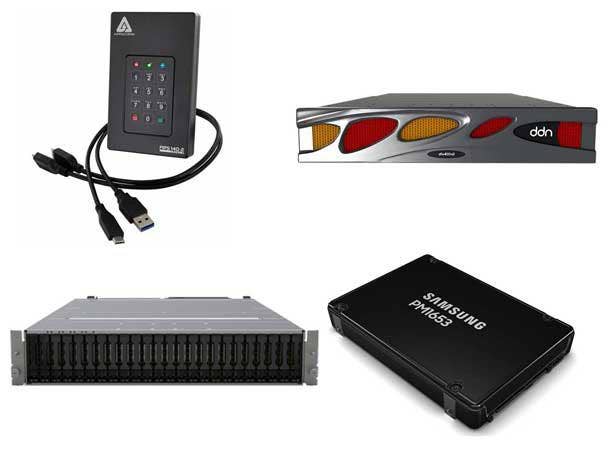
Flash Storage: Speed Not Always Top Consideration
Flash storage over the past decade has become a keystone in the storage industry, and in the IT industry as a whole. That despite the fact that the storage buying decision is not determined by performance alone, but instead determined by what businesses need for their specific – and constantly changing – situations.
Performance is important, but it’s not a simple matter of faster is better. Instead, the performance required depends on the workload, which in turn helps solution providers determine which type of flash storage is required. That ranges from ultra-fast custom-designed flash modules for high-performance workloads to consumer-grade flash that provides high performance, but with capacity and price characteristics similar to those of spinning disks.
But there are other considerations. SSDs and all-flash storage arrays are increasingly available with built-in cybersecurity and ransomware protection and can be ruggedized for protection against harsh environments.
Manufacturers of SSDs and flash storage products were busy in 2021 looking for new ways to address changing business and consumer requirements with advances in flash storage technology. Here’s a look at the 10 coolest SSD and flash storage products of 2021.
For additional storage insights, look for CRN’s The 10 Coolest Data Storage Products Of 2021.
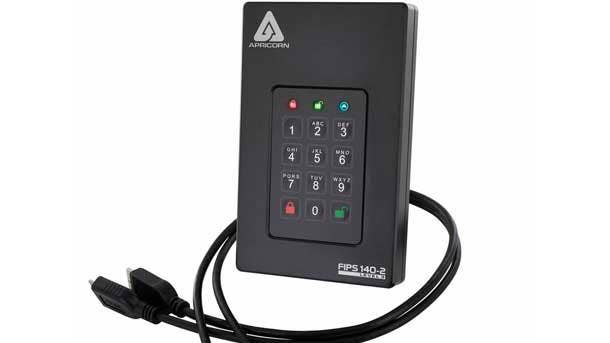
Apricorn Aegis Fortress L3 SSD
Apricorn, a Poway, Calif.-based developer of software-free, 256-bit AES XTS hardware-encrypted USB drives, unveiled its new 20-TByte Aegis Fortress L3 SSD in June. The 20TB Aegis Fortress L3 is targeted at businesses concerned with data security and cyber resiliency. It features the highest level of FIPS (Federal Information Processing Standards) validation for portable devices, 140-2 level 3, which the company said exceeds the standards required by the U.S. federal government for protection of sensitive data.
The 20TB Aegis Fortress L3 is aimed at large enterprises and regulated industries that deal with large amounts of data, including finance, government, power and energy, legal and healthcare. Built into the device is a wear-resistant keypad for authentication, separate administrator and user modes, and a tamper-resistant enclosure made with 6061 aircraft-grade aluminum alloy. It is compatible with any USB port and operating system.
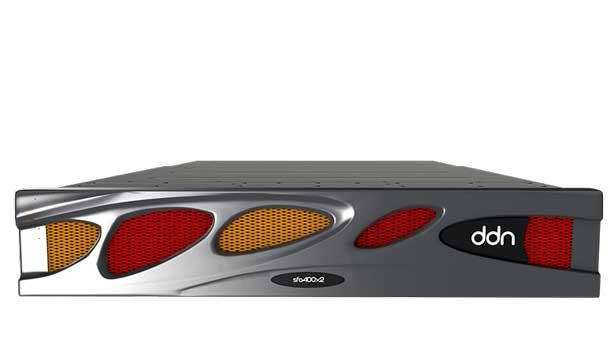
DDN SFA 400NVX2 / 200NVX2
Chatsworth, Calif.-based DDN, a developer of high-performance all-flash storage technology, in November introduced its next-generation NVMe storage platforms, the Storage Fusion Architecture (SFA) 400NVX2 and 200NVX2, the foundation of the company’s EXAScaler ES400NVX2 and ES200NVX2 arrays.
The new platforms support high-performance workloads including AI applications, natural language processing, financial analytics, and manufacturing automation and production. They are available in scale-out, all-flash configurations with a throughput of over 90 GBs-per-second and 3 million IOPS per appliance in a 2U footprint.
Each system can also be deployed in a hybrid configuration with a density of 6.4 petabytes in a half-rack footprint using DDN’s 90-bay drive enclosures. DDN’s EXAScaler 6 Hot Pools feature automates the management of this capacity. Hot Pools optimize for both performance and low cost by transparently migrating data between flash and disk tiers.
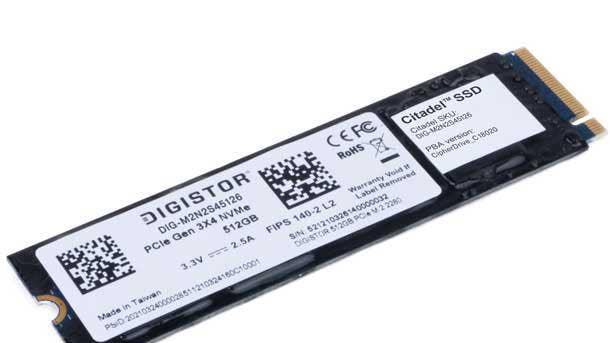
Digistor Citadel SSDs
Digistor, the flash storage and digital video storage business of Vancouver, Wash.-based CRU Data Security Group, in late June introduced its Digistor Citadel self-encrypting SSDs. The company says the new Citadel SSDs are the first to deliver a complete security layer to encrypt and protect data at rest in a low-cost, easily deployed form factor. Citadel SSDs are certified to FIPS 140-2 Level 2 and have pending certification for Common Criteria and provide a low-cost way to adopt data at rest encryption technology.
The SSDs are available in standard M.2 and 2.5-inch form factors, as well as SATA and NVMe interfaces. They support pre-boot authentication,
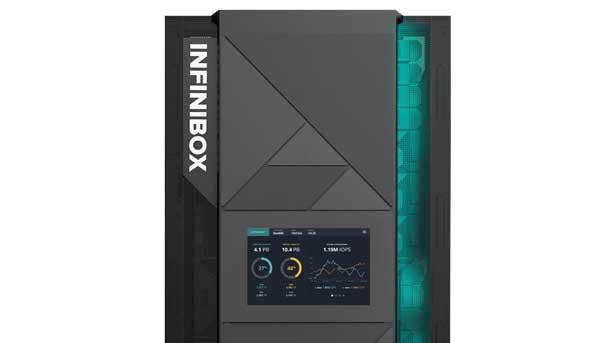
Infinidat InfiniBox SSA
The Infinidat InfiniBox SSA is the latest in Waltham, Mass.-based Infinidat’s InfiniBox series of all-flash arrays. The new InfiniBox SSA is the company’s first 100-percent solid-state technology and is targeted at systems that require consistent low latency.
The company says the InfiniBox SSA offers performance faster than all-flash arrays through the extensive use of DRAM cache enabled by Infinidat’s patented Neural Cache software. DRAM and solid-state drives are both solid-state technologies, but DRAM is an order of magnitude faster than flash-based SSDs. The Infinidat InfiniBox SSA is currently available.
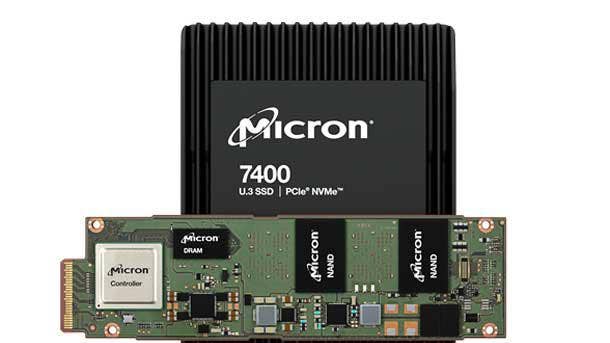
Micron 7400 SSD With NVMe
Micron Technology in October introduced its Micron 7400 SSD with NVMe, a PCIe Gen4 SSD featuring performance and security to meet the storage needs of demanding data center workloads. The Micron 7400 SSD comes in seven different form factors.
According to the Boise, Idaho-based manufacturer, the SSD family includes the only PCIe Gen4 M.2 22x80mm with power loss protection, as well as 2.5-inch U.3 data center SSDs in both 15mm and 7mm thickness. It also features three different sizes of the new E1.S Enterprise and Data Center SSD Form Factor (EDSFF). They are available in capacities ranging from 400 GBs to 7.68 TBs.
On the security side, the SSDs include standards-based features such as TCG-Opal 2.01 and IEEE-1667, and new features for protecting data in-flight and at-rest.

OWC Envoy Pro SX
Woodstock, Ill.-based OWC in July introduced the OWC Envoy Pro SX, a new Thunderbolt bus-powered SSD which combines speed with a rugged design backed by a three-year limited warranty.
The OWC Envoy Pro SX features four capacity points from 240 Gbytes to 2.0 Tbytes, with performance of up to 2,847 MBytes per second with Thunderbolt 3. The SSD was designed for tough environments, including water resistance for up to 30 minutes at up to 1 meter, and drop resistant for drops of up to four feet.
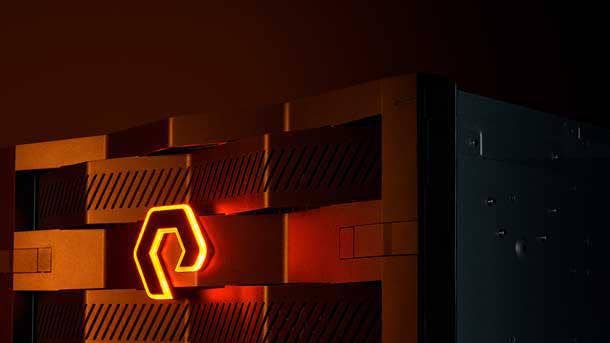
Pure Storage FlashArray//XL
Pure Storage in December expanded its FlashArray all-flash storage arrays with the introduction of its new FlashArray//XL. The FlashArray//XL, the newest flagship of the company’s storage arrays, is based on an entirely new design, built from the ground up with a new chassis and new DirectFlash modules.
The system is targeted at high-performance enterprise workload environments and delivers up to 5.78 PB effective capacity, latency as low as 150 microseconds, and up to 36 GBps throughput – all in a 5U chassis. It also includes 5:1 data reduction average and 99.9999 percent availability, the company said.
Pure Storage expects the FlashArray//XL to be used by enterprises as the base for on-premises high-performance private clouds.
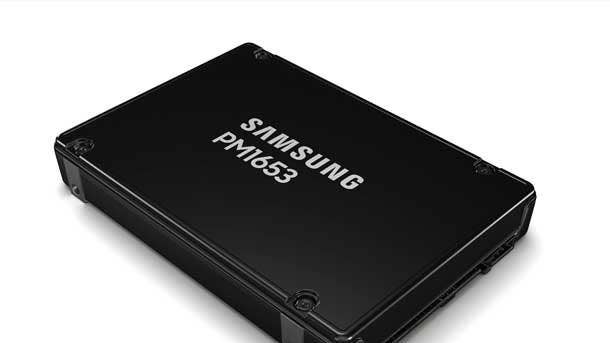
Samsung PM1653
Samsung Electronics in April unveiled its PM1653, which the company called the industry’s highest performing 24-Gbyte SAS-4 SSD. The PM1653 offers twice the speed of the previous 12-Gbyte SAS-3 models. It is also the industry’s first 24-Gbyte SAS SSD made with what the company calls sixth-generation (1xx-layer) V-NAND chips for capacities from 800 GBytes to 30.72 TBytes.
The PM1653 is optimized for high-performance enterprise servers with a random data read speed of up to 800,000 IOPS and a sequential read speed of up to 4,300 MBs-per-second.
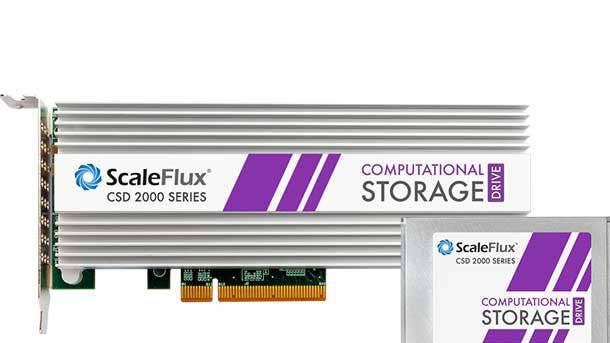
ScaleFlux Computational Storage Drive (CSD) 2000 Data Scale Edition
ScaleFlux in May expanded its Computational Storage Drive (CSD) portfolio to include quad-level cell (QLC) NAND flash storage from Micron Technology. The new QLC drives, featuring integrated and transparent compression, can reduce the cost of flash storage to under $0.01 per gigabyte per year, the company said.
By adding Micron QLC to the Data Scale Edition of ScaleFlux’s CSD product line, ScaleFlux reduces performance and endurance tradeoffs, with performance on par with more expensive TLC drives, up to 6x faster than NVMe QLC SSDs. Endurance is on par with TLC drives, up to 4x greater than that of other QLC SSDs.
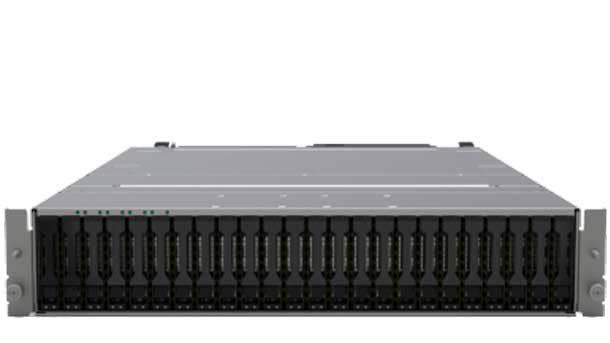
Viking/Kalray Flashbox
Viking Enterprise Solutions, a San Jose, Calif.-based division of electronics manufacturing services (EMS) provider Sanmina, and Kalray, a Grenoble, France-based developer of processors focused on intelligent data processing, in July unveiled the co-development of a new Flashbox family of all-flash storage arrays.
The new systems are based on Viking’s fully resilient VDS2249R storage system and Kalray’s smart storage acceleration card leveraging Kalray’s MPPA DPU (data processing unit) processor.
The combination is an NVMe disaggregated storage system targeting the reduction of performance bottlenecks while providing “plug and play” ease of use for AI and high-performance workloads in such industries as life sciences and financial services. With Kalray’s MPPA DPU, the Flashbox moves all critical functions of a disaggregated storage appliance to a single chip.